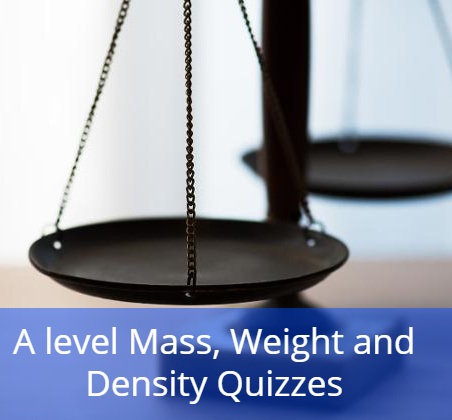A level Mass, Weight and Density Quizzes
Quiz Description
Revising Mass, Weight, and Density with quizzes
(Simple A level mass, weight, and density quizzes for students studying for the GCE, GCSE, and necta)
Welcome to gcequiz.com
In this section, we will be looking at mass, weight, and density. These are important concepts in physics that shouldn't be neglected. Mass and weight are sometimes used interchangeably by most people, which is not correct. Below are some practice quizzes on these concepts that will make students understand the differences. Firstly, let's have a quick overview of what our point of focus is:
Mass is the property of a physical body or the amount of matter a body contains. It can also be defined as a measure of a body's resistance to acceleration, hence motion. The object's mass also depends on its gravitational attraction to other bodies, and this occurs when a net force is applied. The unit of mass is the kilogram(kg), which is totally different from the unit of weight (N).
Weight is the force acting on an object due to gravity. It should also be noted that weight is a vector quantity since it has magnitude and is always directed downwards. It can also be defined as the magnitude of the gravitational force. Weight has units "Newtons (N)".
Density ( ρ) is defined as the mass per unit volume of a substance. It is also known as the volumetric mass density and its SI unit being kilogram per cubic meter (kg/m^3). Below is the formula for calculating the density of a substance:
ρ = (m/v)
where m = mass, ρ = density, and v = volume
Students are expected to be able to differentiate between these terms in the exams. This implies that they need to have a maximum comprehension of the concepts. In this light, more quizzes are available here.
This platform contains numerous questions of examination standards to assist students to prepare well for their various exams. For more information and more quizzes, visit www.gcequiz.com.



